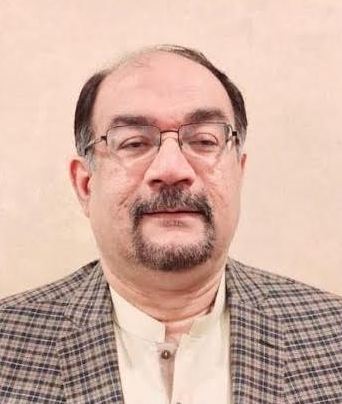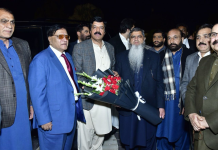LAHORE, NOV 2 /DNA/ – The Ferozepur Road Industrial Association (FRIA) has urged the government to take immediate and practical steps to bring down rising production costs so that local industries can remain competitive in regional and global markets. Industrialists are finding it increasingly difficult to sustain operations as energy tariffs, fuel prices, and taxes continue to climb.
FRIA Senior Vice Chairman and Pakistan Industrial and Traders Associations Front (PIAF) Executive Committee Member Shahbaz Aslam said that the high cost of production is damaging Pakistan’s export competitiveness. He noted that while other countries are supporting their industries through lower utility prices and incentives, Pakistan’s businesses are struggling to cope with expensive electricity, gas, and raw materials.
Shahbaz Aslam said that industrial growth is vital for national prosperity because it creates jobs, boosts exports, and strengthens GDP. However, he warned that the industrial sector’s contribution to the economy has been shrinking due to rising costs, unannounced power cuts, high taxes, and limited access to skilled labour. “Manufacturing and exports can only flourish if the cost of doing business is reduced and the government provides consistent policy support,” he said.
He added that a lack of research and development (R&D) is also a major cause of inefficiency in local industries. “We often have resources but fail to use them wisely due to poor decision-making and outdated work practices. By investing in R&D and modern production techniques, industries can improve productivity and lower their costs,” he said.
The FRIA leader urged the government to consult with trade and industry bodies to find practical solutions. He also called for early payment of tax refunds to ease liquidity problems, lowering energy tariffs, and relaxing import policies for industrial raw materials. “The government should acknowledge the role of industry and exporters who provide mass employment and drive national growth,” he stated.
Shahbaz Aslam highlighted that both global and domestic issues are driving up production costs. He said that the furniture industry, for instance, is struggling internationally due to inflation, power shortages, and policy instability. “Industrial sectors cannot grow in an environment of uncertainty and high utility costs,” he added.
He suggested that the government should focus on facilitating exporters through competitive utility pricing and better infrastructure. “A level playing field is essential for Pakistan’s industries to compete globally,” he emphasized.
The FRIA Vice Chairman said that small and medium-sized enterprises (SMEs) are under immense pressure as they deal with high costs and limited credit access. “Instead of giving relief, we are burdening industries with rising costs. The government should provide affordable financing and incentives for modernization,” he said.
He criticized the slow adjustment of fuel prices, noting that when global prices rise, the increase is immediately passed on to consumers, but when they fall, the relief is delayed. This, he said, adds further uncertainty to business planning.
Concluding his remarks, Shahbaz Aslam said that industrial revival is essential for economic stability, employment generation, and sustainable exports. He urged policymakers to prioritize cost reduction and efficiency improvement as part of a long-term industrial growth strategy. “Reducing the cost of production is the first and most important step toward rebuilding investor confidence and strengthening Pakistan’s economy,” he concluded.

















